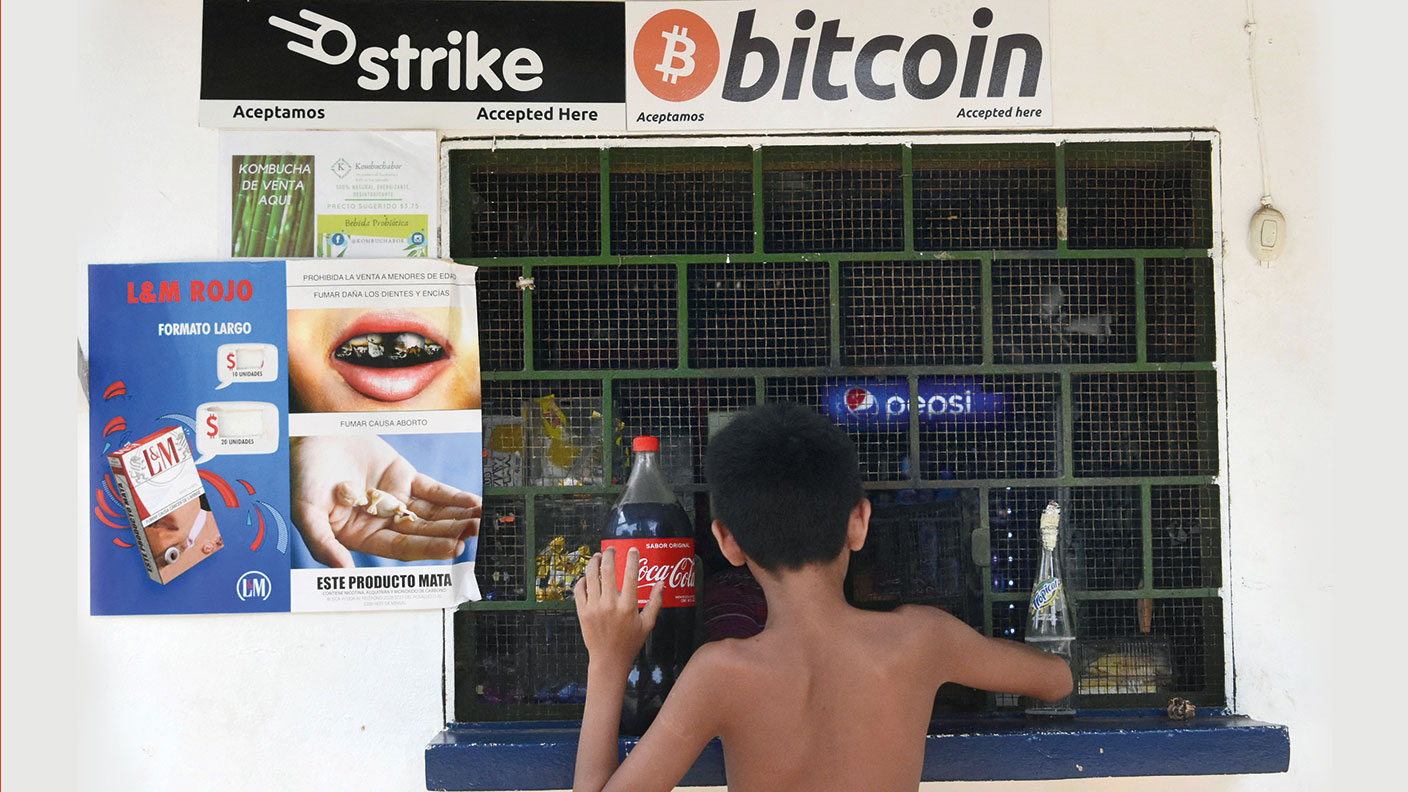The bitcoin bust looks to be over – for now
Bitcoin's mini-bear-market may have bottomed out.

Get the latest financial news, insights and expert analysis from our award-winning MoneyWeek team, to help you understand what really matters when it comes to your finances.
You are now subscribed
Your newsletter sign-up was successful
Want to add more newsletters?

Twice daily
MoneyWeek
Get the latest financial news, insights and expert analysis from our award-winning MoneyWeek team, to help you understand what really matters when it comes to your finances.

Four times a week
Look After My Bills
Sign up to our free money-saving newsletter, filled with the latest news and expert advice to help you find the best tips and deals for managing your bills. Start saving today!
Is the bitcoin bust over? The cryptocurrency has tumbled 37% since hitting an all-time high in mid-April. Yet the mini-bear-market may have bottomed out. At the time of writing bitcoin was trading just below $40,000, having gained more than 8% since the start of the month.
Sentiment towards bitcoin has improved on positive regulatory news, says Anthony Cuthbertson in The Independent. The Basel Committee, the global banking regulator, last week “formally recognised” the digital currency as an asset class. That paves the way for banks to hold crypto-assets. This marks “another major milestone” for the recognition of cryptocurrencies in “the world of traditional finance”. A day earlier the central American nation of El Salvador became the first in the world to make bitcoin legal tender. Elon Musk also had a hand in the latest bitcoin bounce, says Barbara Kollmeyer for Barron’s. The Tesla CEO confirmed that the company has only sold 10% of its bitcoin holdings, despite refusing to accept payments in bitcoin because of environmental concerns about its enormous energy impact. Bitcoin is thought to consume more electricity than the entire nation of Kazakhstan and not far short of “what is used by the Netherlands”.
Institutional adoption is gathering pace, says Laurence Fletcher in the Financial Times. A survey of hedge-fund managers by Intertrust Group finds that they expect “to hold an average of 7.2% of their assets in cryptocurrencies in five years’ time”, implying “$312bn of assets in cryptos”, according to Intertrust’s calculations. Current holdings are unknown but more institutional money is entering the market. The total market capitalisation of all cryptocurrencies is now about $1.7trn, equivalent to the size of Amazon.
MoneyWeek
Subscribe to MoneyWeek today and get your first six magazine issues absolutely FREE

Sign up to Money Morning
Don't miss the latest investment and personal finances news, market analysis, plus money-saving tips with our free twice-daily newsletter
Don't miss the latest investment and personal finances news, market analysis, plus money-saving tips with our free twice-daily newsletter
Get the latest financial news, insights and expert analysis from our award-winning MoneyWeek team, to help you understand what really matters when it comes to your finances.
Alex is an investment writer who has been contributing to MoneyWeek since 2015. He has been the magazine’s markets editor since 2019.
Alex has a passion for demystifying the often arcane world of finance for a general readership. While financial media tends to focus compulsively on the latest trend, the best opportunities can lie forgotten elsewhere.
He is especially interested in European equities – where his fluent French helps him to cover the continent’s largest bourse – and emerging markets, where his experience living in Beijing, and conversational Chinese, prove useful.
Hailing from Leeds, he studied Philosophy, Politics and Economics at the University of Oxford. He also holds a Master of Public Health from the University of Manchester.
-
 Early signs of the AI apocalypse?
Early signs of the AI apocalypse?Uncertainty is rife as investors question what the impact of AI will be.
-
 Reach for the stars to boost Britain's space industry
Reach for the stars to boost Britain's space industryopinion We can’t afford to neglect Britain's space industry. Unfortunately, the government is taking completely the wrong approach, says Matthew Lynn
-
 Early signs of the AI apocalypse?
Early signs of the AI apocalypse?Uncertainty is rife as investors question what the impact of AI will be.
-
 8 of the best properties for sale with beautiful kitchens
8 of the best properties for sale with beautiful kitchensThe best properties for sale with beautiful kitchens – from a Modernist house moments from the River Thames in Chiswick, to a 19th-century Italian house in Florence
-
 Three key winners from the AI boom and beyond
Three key winners from the AI boom and beyondJames Harries of the Trojan Global Income Fund picks three promising stocks that transcend the hype of the AI boom
-
 RTX Corporation is a strong player in a growth market
RTX Corporation is a strong player in a growth marketRTX Corporation’s order backlog means investors can look forward to years of rising profits
-
 Profit from MSCI – the backbone of finance
Profit from MSCI – the backbone of financeAs an index provider, MSCI is a key part of the global financial system. Its shares look cheap
-
 'AI is the real deal – it will change our world in more ways than we can imagine'
'AI is the real deal – it will change our world in more ways than we can imagine'Interview Rob Arnott of Research Affiliates talks to Andrew Van Sickle about the AI bubble, the impact of tariffs on inflation and the outlook for gold and China
-
 Should investors join the rush for venture-capital trusts?
Should investors join the rush for venture-capital trusts?Opinion Investors hoping to buy into venture-capital trusts before the end of the tax year may need to move quickly, says David Prosser
-
 Food and drinks giants seek an image makeover – here's what they're doing
Food and drinks giants seek an image makeover – here's what they're doingThe global food and drink industry is having to change pace to retain its famous appeal for defensive investors. Who will be the winners?